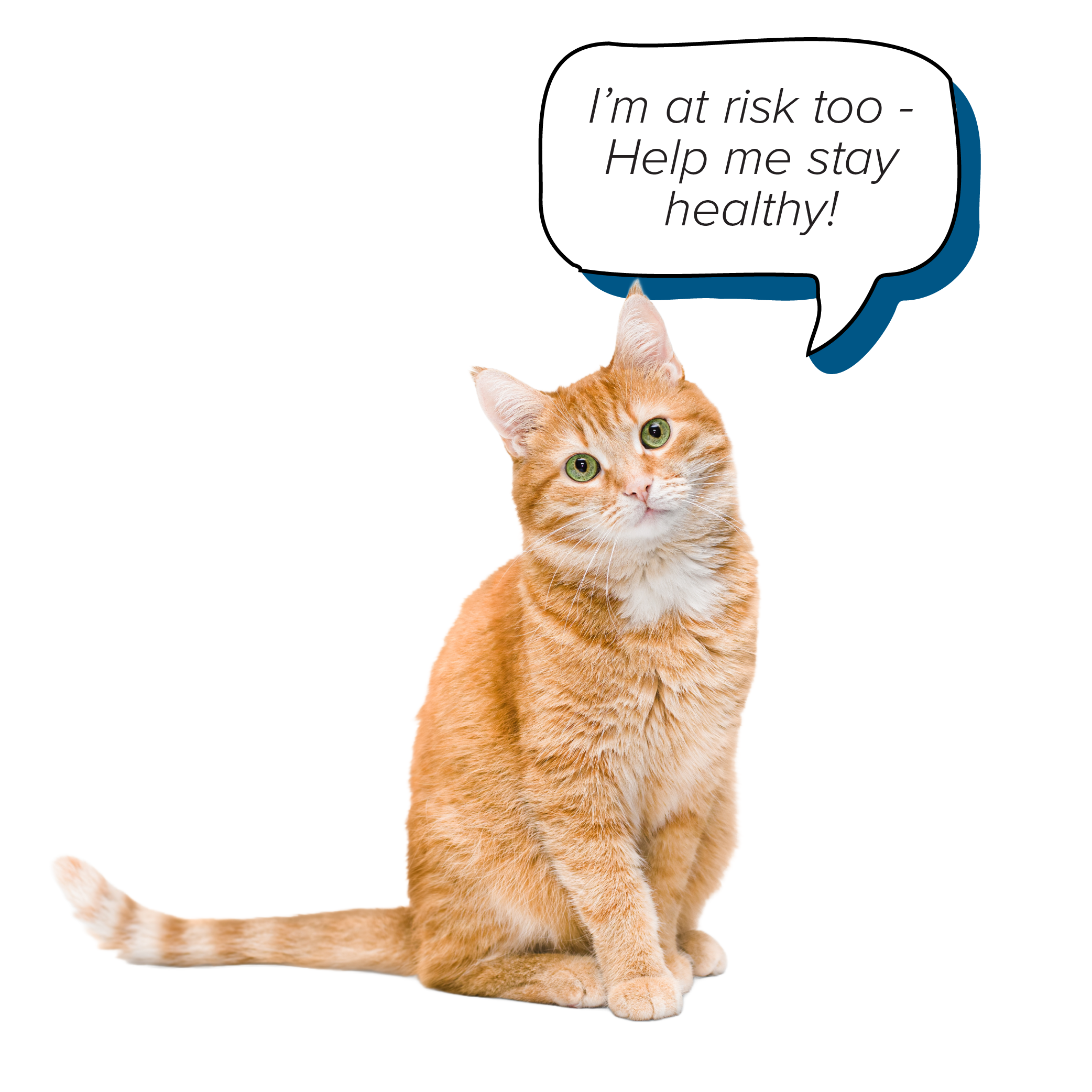

They Trust Us To
Keep Them Safe

Nicotine Toxicity

Pets can be poisoned by nicotine which is found in the liquid component of vape devices (known as e-liquid). Even a small amount of e-liquid can be fatal. Because of the rapid onset and severity of illness once ingested, home care is generally not possible with nicotine exposure and veterinary care is needed.
Symptoms of Nicotine Toxicity:
- Vomiting
- Diarrhea
- Excessive Salivation
- Agitation
- Nervousness
- Tremors
- Seizures
Exposure

Secondhand
Secondhand exposure happens when pets breathe in the toxic fumes from tobacco and e-cigarette products. Pets are more sensitive to inhaled irritants than humans and they breathe faster, so they inhale the aerosol from vaping and the smoke from cigarettes more quickly.
Secondhand


Thirdhand
Thirdhand exposure happens when toxic residues from tobacco and e-cigarette products settle on surfaces, fabrics, or pet fur. Pets often come into contact with these residues when they lick their paws, groom themselves, or lie on contaminated surfaces, increasing their risk of health problems.
Thirdhand

Pets’ natural curiosity and the sweet taste of some of the chemicals in e-liquid can lead them to explore areas where nicotine products are stored or disposed of.
Garbage Raids
Unattended Products
Unattended nicotine products, such as vape devices or pouches, can be ingested if left within a pet’s reach

Spilled
E-Liquid
Pets might lick spilled e-liquid from surfaces, leading to nicotine toxicity
Battery Ingestion
Proper disposal of vaping devices is essential to protecting the environment and preventing hazardous waste contamination. E-cigarettes and vape pods contain nicotine, heavy metals, and lithium-ion batteries, all of which can be harmful if not handled correctly. These materials should never be thrown in regular trash or flushed down the drain, as they can leach toxins into soil and water. Instead, used devices should be taken to designated hazardous waste facilities or electronic recycling programs to ensure safe and responsible disposal. Learn more at deq.idaho.gov.
For more information on managing e-cigarette waste, download this fact sheet.
Statistics
30%
of dogs exposed to secondhand tobacco smoke or vape aerosol develop respiratory issues.

4 mg
of nicotine per pound of a pet’s body weight can be lethal.
75%
of cats exposed to secondhand smoke are at increased risk of lymphoma.
1 in 3
pets that ingest nicotine products need emergency treatment.
$500-$3,000
is the range for a vet bill for nicotine toxicity emergency treatment.
50%
of untreated nicotine poisonings in pets are fatal.
You Can Quit

Central District Health offers in-person and virtual classes to help you quit smoking, vaping, or using nicotine products. Make the choice to quit today—for your health, for your loved ones, and for the pets who rely on you. Take the first step toward a cleaner, safer home.
